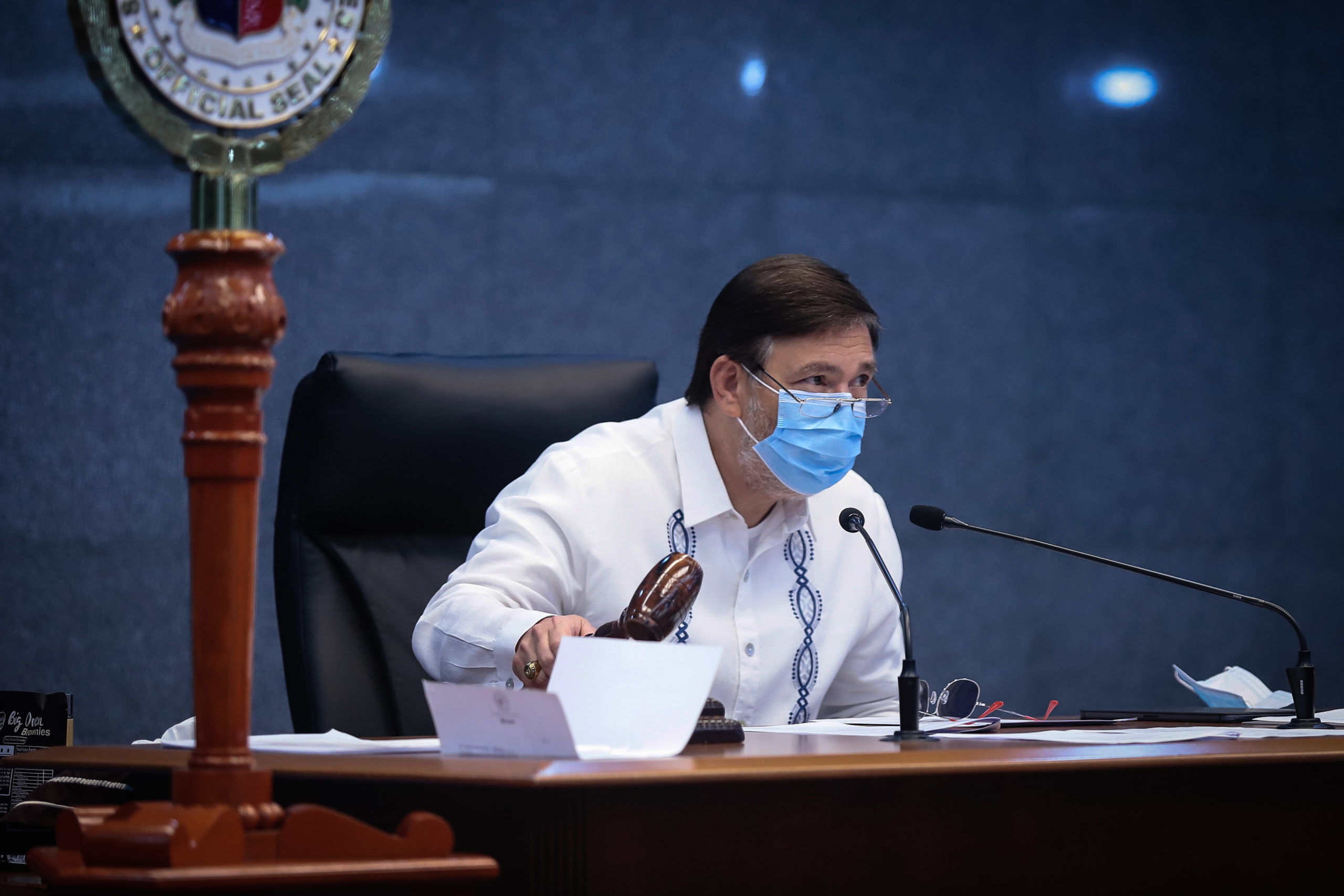Recto: Congested PH jails are petri dishes for coronavirus

FILE PHOTO– Senate President Pro-Tempore Ralph Recto. (Henzberg Austria/ Senate PRIB)
MANILA, Philippines—Senate President Pro Tempore Ralph Recto did not mince his words when describing the deplorable state of Philippine jails in the time of the COVID-19 pandemic, saying the facilities as akin to a can of processed meat.
Recto said that jail cells are a ticking time bomb for the virus as prisoners are put in facilities that can only house so many.
“Our congested jails—where prisoners are no longer packed like sardines, but are stuffed like Spam in a can—are petri dishes for the coronavirus,” said Recto in a statement Wednesday. “Prisons exist so offenders can pay for their crimes with their liberty, but not with their lives. The aim of restorative justice is to change them, and not to cause their cremation.”
“The “PDL” stenciled on the prisoners’ OOTD [outfit of the day] stands for ‘Person Deprived of Liberty.’ As we are still a government of laws, let us make sure that COVID will not change it to ‘Person Deprived of Life.’”
Bureau of Jail Management and Penology facilities had a congestion rate of 386 percent while those under the Bureau of Corrections were at 278 percent. The average size of a prison cell in the Philippines is 0.87 square meters.
Article continues after this advertisementThere have been more than 500 cases of COVID-19 among prisoners as of late May and there are fears that there are some that have gone unreported.
Article continues after this advertisementA total of nine high-profile inmates allegedly died of the virus while inside the prison including Jaybee Sebastian.
“The virus does not discriminate on who to hit in these tight confines. The guard and the guarded are both vulnerable. In fact, hundreds of BJMP personnel had tested positive. It is in the public’s interest that jails be COVID-free so jailors will not bring it back to their homes and communities,” said Recto.
“There is no vaccine yet against this disease. But in the case of jails, there is one non-medicinal option that can prevent its spread, and that is to release those who have reached the minimum jail time if convicted, the old, the senile, and the sick.”
As a measure to slow down the spread, the Supreme Court ordered to release almost 10,000 inmates back in May.
Recto, however, suggested that the BJMP and Bucor can still alleviate the congestion s through a 2014 Supreme Court circular on the provisional release of inmates whose cases have gone stagnant in courts.
“There is room for expansion of this order, to cover other qualified detainees, on humanitarian grounds, balanced with public safety,” said Recto. “This will not only defuse a public health timebomb, but is good expenditure policy as well.”
He added that releasing some of the inmates not only helps in curbing the spread of COVID-19 but it will also allow the BJMP and Bucor to save around P31,000 of taxpayers’ money which is used to fund the board and lodging of one prisoner every year.
Apart from the BJMP and Bucor, Recto said that PNP’s detention facilities also need decongesting with some 3,000 quarantine violators still locked up due to delays in inquest proceedings.
“These were the ones who were apprehended in checkpoints, caught out under curfew because they couldn’t hail a ride and was forced to walk, and couldn’t afford mask,” said Recto. “The ends of justice require their release.”
“If physical distancing is impossible in crammed police stations, where offices and detention rooms are separated only by bars, then these are outbreaks waiting to happen—putting our policemen in harm’s way and further congesting our already full hospitals.”
CFC
For more news about the novel coronavirus click here.
What you need to know about Coronavirus.
For more information on COVID-19, call the DOH Hotline: (02) 86517800 local 1149/1150.
The Inquirer Foundation supports our healthcare frontliners and is still accepting cash donations to be deposited at Banco de Oro (BDO) current account #007960018860 or donate through PayMaya using this link.